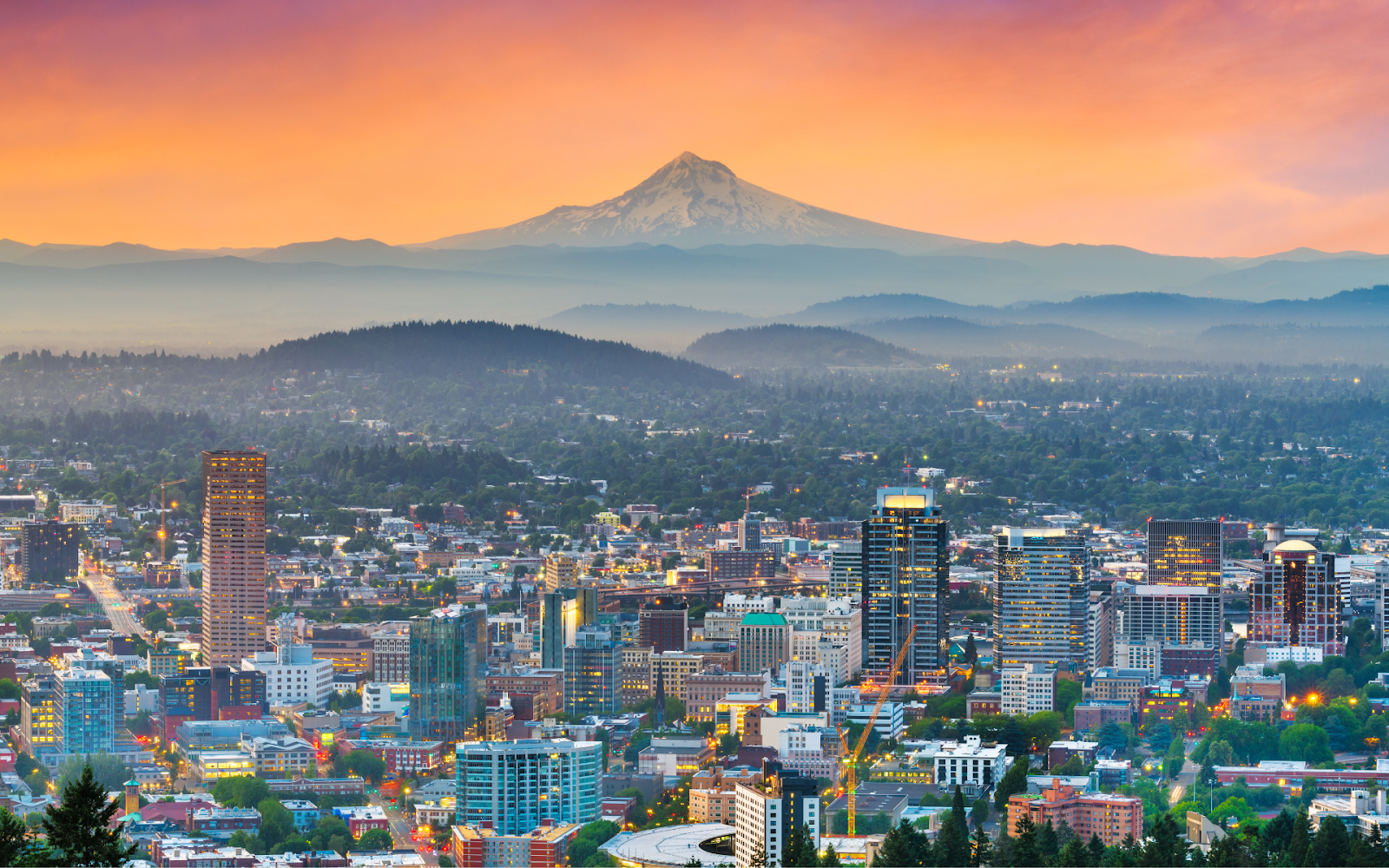
Key Takeaways:
- Legal Distinctions: Oregon has distinct legal frameworks for medical and recreational THC use, with specific regulations on possession limits, growing rules, and consumption locations.
- Federal Impact: Despite state legalization, federal law continues to classify THC as illegal, affecting banking, business operations, and use on federal properties in Oregon.
- Future Prospects: Oregon's THC legislation is expected to develop with potential expansions in medical use, adjustments in recreational market regulations, and advancements in social justice initiatives.
At Soul, we take great pride in our unwavering commitment to complying with Oregon's THC regulations. Our dedication to adhering to state and federal laws ensures that all of our products are legally approved and safe for our customers to enjoy. By prioritizing compliance, we are able to offer a wide range of wellness options that have been rigorously tested and verified. As a result, we have earned a reputation as a reliable and trustworthy leader in the hemp industry.
In this article, we will share with you the intricacies of THC laws within the state, distinguishing between medical and recreational use. As Oregon continues to develop its stance on cannabis, understanding these regulations is crucial for both residents and visitors. We'll look into the current laws governing THC, the penalties for possession, the impact of federal laws on state regulations, legal alternatives to THC, and the future outlook on legislation. Whether you're a medical user, recreational enthusiast, or simply curious about the state of cannabis laws, this guide will provide you with the essential information you need.
Understanding The Difference Between Medical And Recreational Use
In Oregon, the regulations for THC are divided into two main categories: medical and recreational use. The Oregon Medical Marijuana Program (OMMP) was established in 1998, allowing individuals with qualifying conditions to obtain and use cannabis for medical purposes. This program provides a framework for patients and their caregivers to legally possess and grow cannabis under state law.
On the other hand, recreational use was legalized in 2015 with the passing of Measure 91. This allows any individual aged 21 and over to purchase, possess, and use cannabis for recreational purposes. While both medical and recreational cannabis are legal, there are distinct differences in possession limits, allowable places of use, and taxation. Medical patients are allowed higher possession limits and some tax exemptions that are not available to recreational users.
Current Laws Governing THC In Oregon
Possession Limits
In Oregon, adults aged 21 and over are legally permitted to possess up to one ounce of cannabis on their person when away from home. At home, the possession limit increases to eight ounces of usable cannabis. These limits are designed to prevent illegal distribution while allowing ample quantity for personal use. Beyond dried flower, individuals can also possess up to 16 ounces of solid cannabinoid products (like edibles) and 72 ounces of cannabinoid products in liquid form.
Growing At Home
Oregon law allows residents to cultivate up to four cannabis plants per household. This rule is irrespective of the number of people living in the home, focusing instead on controlling the total number of plants to reduce the risk of black-market distribution. Growing more than the allowed limit can lead to significant legal penalties unless authorized for medical purposes, where the limits are higher.
Public Consumption
Public consumption of cannabis is strictly illegal in Oregon. This includes all public spaces such as streets, parks, and recreational areas. The law minimizes exposure to non-users and children, maintaining public decorum and safety. Private property remains the only legal place for consumption, provided there is explicit permission from the property owner.
Driving And THC
Similar to alcohol, driving under the influence of cannabis is illegal in Oregon and is treated with severe penalties. The state has set specific limits for THC blood concentration, and exceeding these can lead to DUI charges. Oregon law enforcement uses sobriety tests and can request blood tests if cannabis use is suspected in drivers.
Sale And Distribution
Only state-licensed dispensaries are authorized to sell cannabis and THC-containing products in Oregon. This regulation ensures that all products meet safety standards and that taxes are appropriately collected. Illegal sale or distribution of cannabis, including selling without a license or purchasing from an unlicensed source, is subject to legal action.
Penalties For THC Possession In Oregon
Exceeding Possession Limits
When individuals possess amounts of cannabis above the state's legal limits, they face varying degrees of legal consequences. For possession slightly over the limit, the charge is often a violation or a misdemeanor, accompanied by fines up to $2,500 and potential short-term imprisonment. Exceeding the limit with intent to distribute results in felony charges. Fines and prison time depend on the amount and circumstances.
Public Consumption Violations
Oregon enforces strict rules against the public consumption of cannabis, which includes smoking or consuming edibles in public spaces. Violators are typically fined, which can range from $100 to $1,000 depending on local ordinances and the number of prior offenses. Persistent violations can escalate to criminal charges, underscoring the state's commitment to restricting use to private settings.
Underage Possession
It is illegal for individuals under 21 to possess cannabis, and penalties are in place to discourage such behavior. First-time offenders may face fines, mandatory attendance in drug awareness programs, and community service. Subsequent offenses often result in increased punitive measures, including larger fines and more extensive drug rehabilitation requirements.
Driving Under The Influence
Oregon treats driving under the influence of THC as a severe breach of public safety. Offenders may face immediate arrest, driver’s license suspension for up to a year, fines up to $10,000 for repeated offenses, and mandatory DUI education programs or imprisonment.
Illegal Sale And Distribution
Engaging in the unauthorized sale or distribution of cannabis is a serious felony in Oregon. Those convicted face severe penalties, including long-term imprisonment and fines that can exceed $100,000.
Impact Of Federal Laws On Oregon's THC Regulations
Despite state legalization, cannabis remains classified as a Schedule I controlled substance at the federal level, leading to a complex interplay between state and federal laws. Here’s how federal regulations affect Oregon’s THC laws:
- Federal vs. State Jurisdiction: While Oregon has legalized THC for both medical and recreational use, it remains illegal under federal law. This situation can lead to issues where federal laws can hinder the operations of cannabis-related businesses.
- Banking and Business Operations: Cannabis businesses in Oregon often struggle with banking and financial services due to federal restrictions. Many banks are hesitant to serve cannabis businesses to avoid potential legal issues related to federal drug laws. This forces many businesses to operate primarily in cash, which poses security risks and complicates tax collection.
- Federal Property and Regulations: The use or possession of cannabis on federal property, including national parks and federal buildings, is illegal, regardless of state laws. Residents and visitors in Oregon must be aware of these boundaries to avoid fines and imprisonment.
- Interstate Transport and Legal Risks: Transporting cannabis across state lines remains a federal offense, even between states where cannabis is legalized. This can lead to significant legal repercussions, including federal charges, if individuals or businesses attempt to transport cannabis into or out of Oregon.
Legal Alternatives To THC In Oregon
CBD Products
Cannabidiol (CBD) is extracted from the hemp plant and is renowned for its therapeutic properties without inducing a high. In Oregon, CBD is available in numerous forms such as oils, creams, tinctures, and edibles. These products are widely used for their potential to alleviate chronic pain, anxiety, and sleep disorders. CBD is federally legal, making it a popular choice for those who want the health benefits of cannabis without any psychoactive effects.
Delta-8 THC
Delta-8 THC is a cannabinoid found in cannabis plants, but it is less potent than the more commonly known Delta-9 THC. While it does produce some psychoactive effects, they are generally milder compared to those of Delta-9 THC.
The legality of Delta-8 THC in Oregon is complex, as it often depends on whether it is derived directly from THC or converted from CBD in hemp. Consumers interested in Delta-8 should be aware of the changing regulations and ensure that they purchase from reputable sources to avoid products with potentially unsafe contaminants.
Kratom
Kratom is derived from the leaves of the Mitragyna speciosa tree native to Southeast Asia. It is used for its stimulating effects at low doses and sedative effects at high doses. In Oregon, kratom is legal and is used by some as an alternative to traditional painkillers or to aid in the cessation of opioid use. However, it's important to note that kratom is under scrutiny by various health agencies and may face future regulations due to concerns about its safety and potential for dependency.
Synthetic Cannabinoids
These are chemicals created in a laboratory to mimic the effects of THC and are often marketed under names like "Spice" or "K2". While some synthetic cannabinoids are legal, they can be extremely dangerous and unpredictable. Oregon has seen a range of health issues arising from these substances, leading to a cautious approach towards their use. Users should be aware of the high risks associated with these products, including severe side effects and potential for addiction.
Future Outlook On THC Legislation In Oregon
Increased Regulation And Oversight
In response to the growing cannabis industry, Oregon may enhance its regulatory framework to ensure higher standards of product safety and ethical marketing. This may involve stricter testing for contaminants, accurate labeling to inform consumers, and regulations aimed at preventing misleading advertising.
Medical Cannabis Expansion
Oregon might broaden the scope of conditions eligible for treatment under the Oregon Medical Marijuana Program. This expansion could be driven by ongoing research that supports the efficacy of cannabis in treating a wider range of medical conditions. Further integration of cannabis into traditional healthcare could facilitate wider acceptance and use, providing relief to a larger number of patients and potentially reducing reliance on more harmful pharmaceutical alternatives.
Recreational Market Adjustments
Adjustments in the recreational cannabis sector could include revising tax rates to balance state revenue with consumer affordability, modifying possession limits based on usage data, and fine-tuning public consumption laws to better address public health concerns. These changes would aim to refine the regulatory model based on practical outcomes and growing public health data, ensuring that the recreational use of cannabis contributes positively to state economics and social practices.
Interstate Commerce
The possible legalization of cannabis at the federal level could create opportunities for Oregon to expand its cannabis product exports to other states. This could have a positive impact on the local economy, but it would also require Oregon to adapt to new federal regulations and compete with other established markets. If this scenario were to happen, it would increase Oregon's significance in the national cannabis industry and could potentially lead to advancements in cultivation methods, product development, and distribution strategies.
Social Justice Initiatives
Future legislation in Oregon may increasingly focus on rectifying the historical injustices associated with cannabis prohibition. This could involve more aggressive measures to expunge criminal records for cannabis-related offenses and initiatives to ensure that communities disproportionately affected by past laws benefit from the cannabis industry.
CBD And Hemp Law Refinements
As consumer interest in CBD and hemp products continues to surge, Oregon might refine its regulations concerning these substances. This could involve clearer guidelines on cultivation practices, processing, and the sale of CBD and hemp products, to ensure product quality and consumer safety.
Final Thoughts
As Oregon continues to navigate the complexities of THC legalization, residents and visitors must stay informed about its laws and regulations. Understanding the current regulations and staying abreast of changes is essential for anyone involved with THC, whether for medical, recreational, or business purposes. The state's progressive stance on cannabis is poised to develop, reflecting broader societal shifts and scientific advancements.
Oregonians should also be mindful of the distinctions between state and federal laws. While the state has embraced cannabis through detailed regulatory frameworks, federal restrictions remain a significant hurdle, especially regarding banking, federal property, and interstate commerce. Awareness and compliance with these laws are crucial to avoid legal complications.
Looking ahead, the potential for changes in both state and federal legislation could offer new opportunities and challenges. Engaging with these developments through responsible consumption, participation in community discussions, or advocacy can help shape a future where cannabis legislation aligns with public health, safety, and social equity goals.
Read also:
Frequently Asked Questions About THC Legality In Oregon
Can tourists buy weed legally in Oregon?
Yes, tourists over the age of 21 can legally purchase weed in Oregon, just like residents, as long as they have valid government-issued identification.
How much weed can a tourist possess in Oregon?
Tourists are held to the same possession limits as residents, which is up to one ounce on their person and up to eight ounces in a private residence.
Are there legal places to consume weed in Oregon?
Legally, weed can only be consumed on private property with the owner's consent. Public consumption remains illegal.
Is it legal to drive with weed in your car in Oregon?
While it is legal to transport weed in your car within legal possession limits, it must be kept in a closed container and should not be accessible by the driver or passengers while the vehicle is in operation.
What happens if you're caught smoking weed in public in Oregon?
Public consumption can result in a fine and, depending on the municipality, other penalties like community service or participation in a drug education program.
Can employers in Oregon still test for hemp?
Yes, employers in Oregon can still test for hemp and have the right to enforce a drug-free workplace policy, even though weed is legal for recreational use.
What should you do if your neighbor is smoking weed and it bothers you?
If your neighbor's weed use bothers you, it's best to discuss the issue with them directly or consult with your landlord or property management if applicable. Municipalities may have ordinances that regulate smoke drift and nuisance.
Are weed delivery services legal in Oregon?
Yes, weed delivery services are legal in Oregon within the state's licensed dispensary system. These services must comply with all state regulatory requirements.
Sources:
- Hansen, C., Alas, H., & Davis Jr., E. (2021, June 30). Where Is Marijuana Legal? A Guide to Hemp Legalization. US News & World Report. https://www.usnews.com/news/best-states/articles/where-is-Marijuana-legal-a-guide-to-Hemp-legalization
- Washington DC Hemp Laws | WashingtonDCCannabis.org. (n.d.). Washington D.C. Cannabis Information Portal. https://washingtondccannabis.org/laws
- Inc, G. (2021, November 4). Support for Legal Marijuana Holds at Record High of 68%. Gallup.com. https://news.gallup.com/poll/356939/support-legal-Marijuana-holds-record-high.aspx
- Dorbian, I. (n.d.). Despite Some Stumbles, Total Sales In U.S. Cannabis Market Could Soar To $50.7 Billion By 2028, Says Top Researcher. Forbes. Retrieved October 18, 2023, from https://www.forbes.com/sites/irisdorbian/2023/02/15/despite-some-stumbles-total-sales-in-us-cannabis-market-could-soar-to-507-billion-by-2028-says-top-researcher/?sh=1f90e293164d






